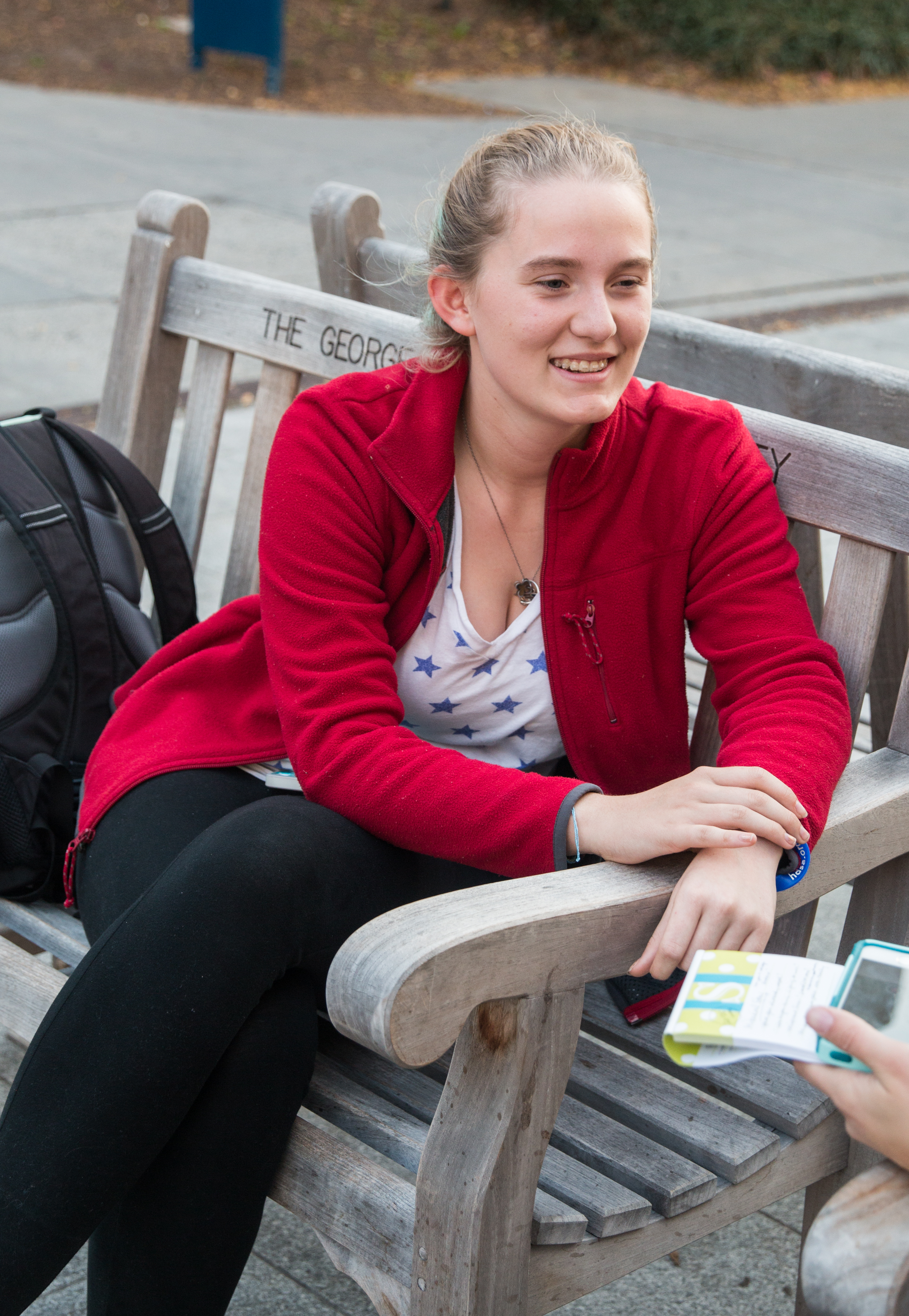WASHINGTON, D.C. — President Barack Obama interrupted Americans listening to Spotify on Tuesday, Nov. 8, and reminded them to vote. There is no question this message was intended for a specific voting group: millennials.
On a millennial YouTube channel, Obama said only one-third of millennials voted in the 2012 presidential election. That meant two-thirds didn’t bother going to the polls to make their opinions heard.
With cities reporting the highest first-time voter turnout in years, paired with a rise in millennial voting percentage, many are left to wonder why this group is so active in this specific election if they aren’t too thrilled about the candidates.

First-time voter and D.C. native Norma Ripley-Grant is certainly more engaged in the election atmosphere than many other millennials because she lives on Capitol Hill. As a freshman at George Washington University, she’s surrounded by political conversation.
“On one side, Trump is very different so people can stand behind that because he’s something they’ve never seen before and they’ve never felt like voting (until now),” Ripley-Grant said. “But on the other side, people don’t want Trump. So they have to vote to prevent that.”
Ripley-Grant said she was not afraid of the outcome of the election because she believes Clinton was the better candidate.
Andre Lindsay, a senior at George Washington University studying international affairs, sent in his absentee ballot to his hometown in Florida. Though he originally supported Bernie Sanders, he voted for Hillary Clinton because “she’s better than Trump.”
“I’m worried if it’s Trump because of all the bigotry and stuff,” Lindsay said about the state of the country after the election. “If it’s Hillary, she’s capable. I just don’t really like her that much, but I think she’s capable of leading the country. Trump is not at all.”
Lindsay said rather than supporting a specific candidate, he’s seen people vote just to prevent the other from becoming president. This was the same process Ripley-Grant noticed as well.
“People who are voting for Hillary are not really voting for her, but against Trump,” Lindsay said. “There is a lot of that going on.”
Lindsay said his vote was influenced by the activism of Clinton’s campaign.
“I’ve gotten three phone calls and five texts today from Hillary’s campaign asking if I voted,” Lindsay said. “It seems like civic duty is more important in this election.”
The idea of voting as a “civic duty” impacted other college students as well.
Libby Oppy is a sophomore at Valencia College in Orlando, Florida, and works at Disney World. Oppy voted in Florida and said she feels her vote counted more in this presidential election than in 2012 when she voted in her hometown in Pennsylvania.
“Voting for the first time in a swing state, I feel better better about this vote,” Oppy said.
Oppy followed the election closely on social media in order to learn about the candidates.
“On Twitter specifically, I feel like I followed it the most,” Oppy said. “That’s where there was the most childlike behavior, so I think that makes it really easy to not want to choose someone who acts like a child on the internet as our president of the United States.”
BYU student Max Worsham, a junior from Riverton, Utah, said he wasn’t impressed with either candidate, nor their behaviors.
“I don’t feel like (the candidates) are a very good representation of what a leader should be,” Worsham said. “They aren’t people I can trust.”
Yet, he said his vote counts now more than ever.
“If it counts for any election, it will count for this one just because of the way things are turning out, especially in Utah with Evan McMullin,” Worsham said. “So yes, at the current moment, I do think it makes a difference. At least that’s what I like to tell myself.”
Worsham said social media, which is where he has received the majority of his political information, shows “the good, the bad and the ugly of the candidates.”
Seattle, Washington, native and UVU student Charity Styles shared Worsham’s view on the candidates.
“I don’t feel good about either of them,” Styles said. “Anything can go because I’m more worried about how I am going to govern my life and myself than how the president may govern our country at the moment.”
Worsham also said the outcome wasn’t as important as what would happen during the next four years.
“I feel like even if Trump or Clinton ends up as president, then it’s not the end of the world,” Worsham said. “Yeah there are disconcerting aspects to it, but I definitely do believe that we as citizens of the United States can make a large difference … things can still be done.”
Millennials participated in the election and believe their voice continues to matter. Now, it seems, they are looking forward to the end of all the election hype.
“I’m just hoping that when it’s over, it’s actually over, and everyone allows the decision to be made,” Obby said.




